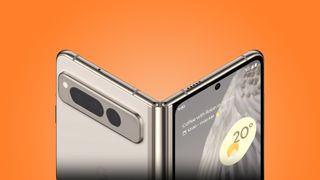Google Pixel Fold 2 could bring a big performance boost to on-device AI
The Google Pixel Fold 2 may skip the Tensor G3 chip in favor of a next-generation Tensor and come with a hefty 16GB of RAM, which would be a first for a Pixel phone.
This all comes from an anonymous source who spoke Android Authority and claimed that Google’s next foldable phone will come with a Tensor G4 chip and will likely launch alongside the highly rumored Google Pixel 9, rather than at Google’s mid-year I/O event where the original Pixel Fold was launched.
According to the source, previous prototypes of the Pixel Fold were equipped with a Tensor G3 chip, but Google has now made a change in development and opted for an unreleased Tensor chip.
For the uninitiated, the Tensor chips are Google’s in-house designed chunks of silicon that prioritize AI workloads over the raw CPU and GPU performance of the likes of the Qualcomm Snapdragon 8 Gen 3. These Tensor chips make fast AI features such as live translation, but also power newer generative AI tools such as the Magic Editor found in the Google Pixel 8 series.
Opting for a new Tensor chip in the next-generation Pixel Fold would be a way to make the phone stand out from its non-folding predecessors, beyond just a foldable screen. The likely increase in power, especially in machine learning and on-board neural processing, could bring faster and more responsive AI functions, in addition to new generative AI tools. And on a foldable phone, generative AI features that can help produce more content or better manage workflows make a lot of sense.
Of course, Android Authority’s anonymous source could be completely wrong and we could see the Pixel Fold 2 release this year around the same time frame as its predecessor; the Pixel Fold was unveiled in May 2023 and then released on June 27. If this turns out to be the case, the Pixel Fold 2 will likely ship with the Tensor G3.
Build in more power
As someone who often uses foldable phones, I hope the Pixel Fold 2 does indeed come with a Tensor G4 chip and the aforementioned 16GB of RAM. While phone specs and performance can often feel a bit iffy – even phones that are several years old are still more than powerful enough to handle just about anything – more power in a foldable phone makes more sense.
That’s because I believe foldable phones are very powerful productivity devices, with some potential to even work as mini desktop PCs with the likes of Samsung DeX or various screen mirroring options. If you have more strength, it means you can probably do more.
Likewise, I think foldable phones offer an opportunity for more powerful generative AI features. Not only do they provide additional screen real estate for manipulating images, but AI could also be used to better handle multitasking, serve up apps, and intelligently resize windows and views based on the needs of the user. user – this would definitely reduce the issues I encounter when trying to manually set settings and open split screen apps.
With the Pixel Fold 2 only existing in the realm of rumors, we’ll have to wait and see if more tips and leaks emerge as 2024 progresses. But things are looking hopeful for a successor to one of our picks for the best foldable phones.

